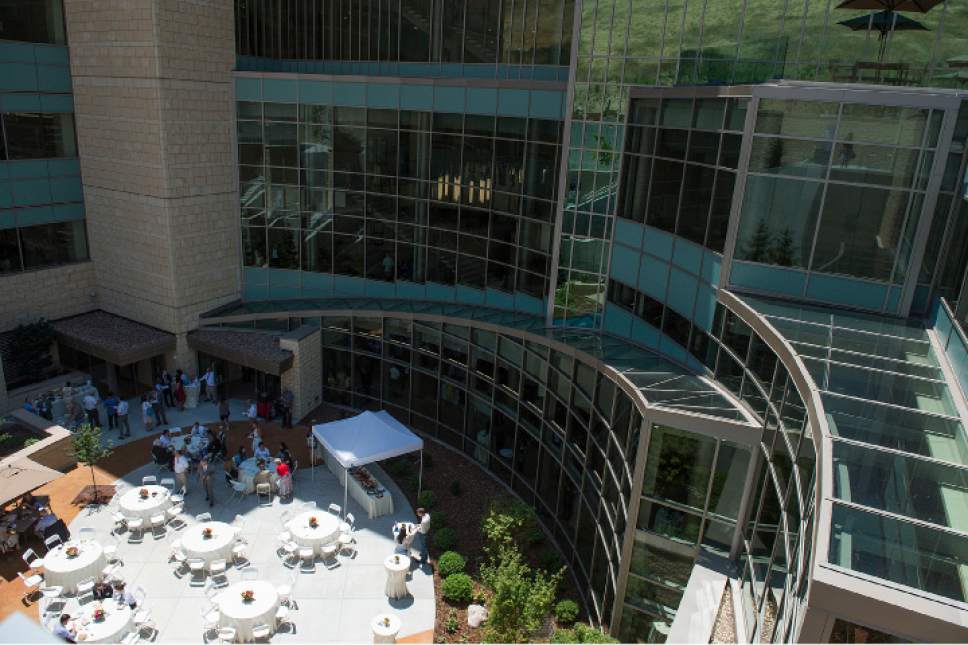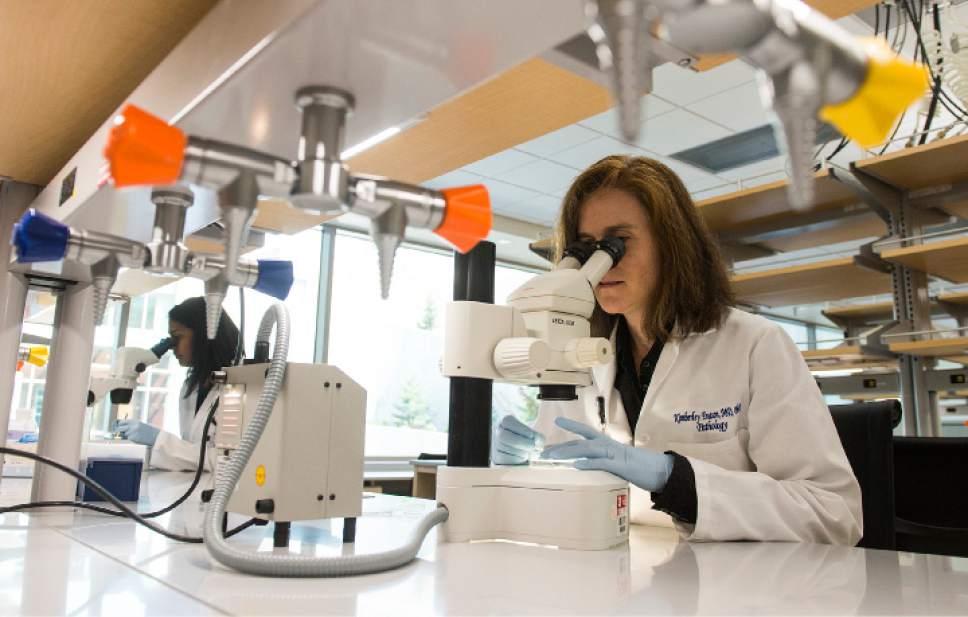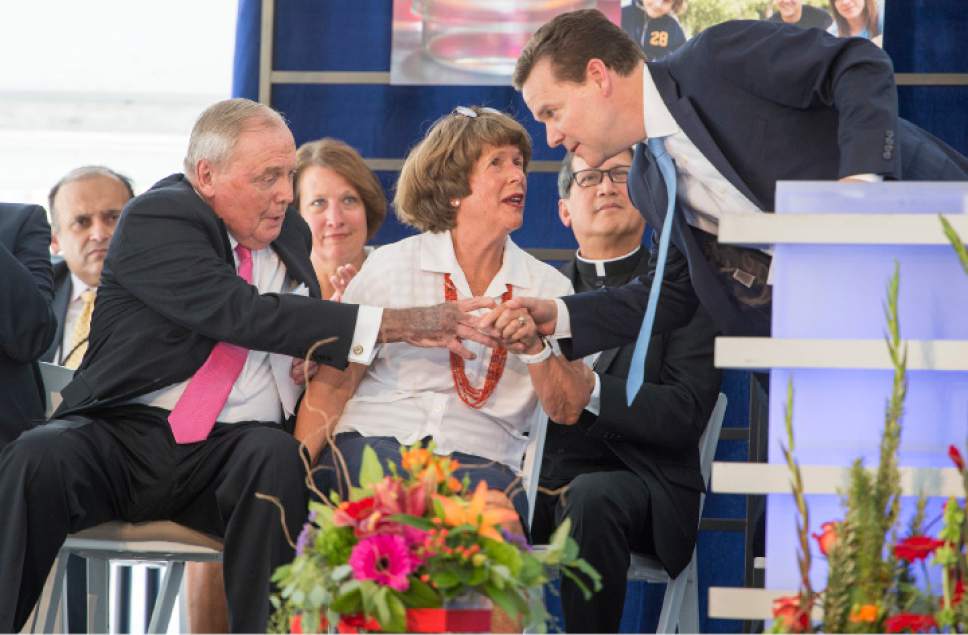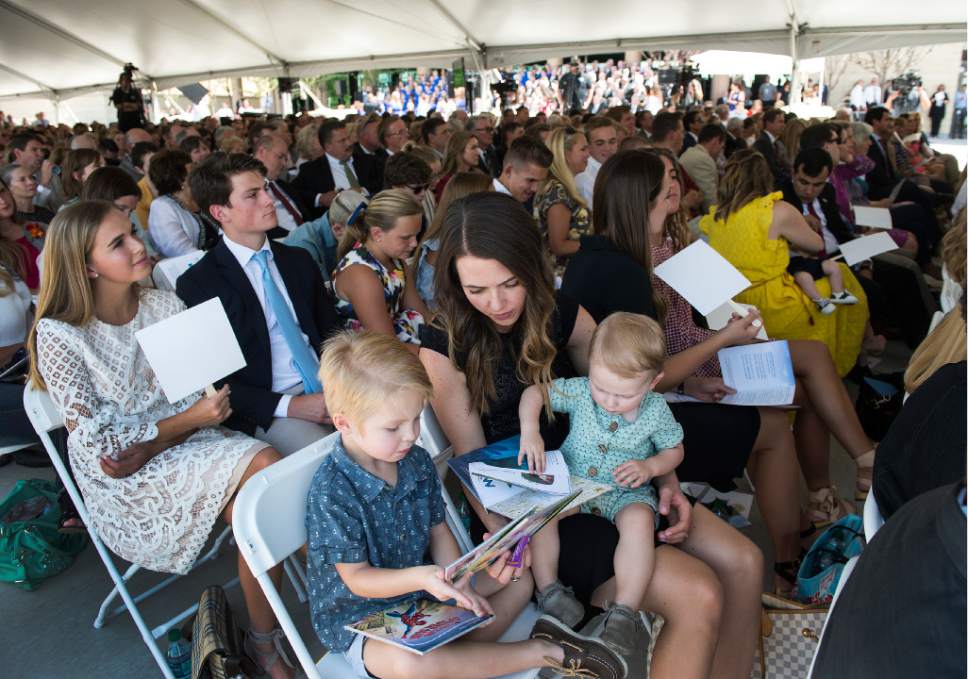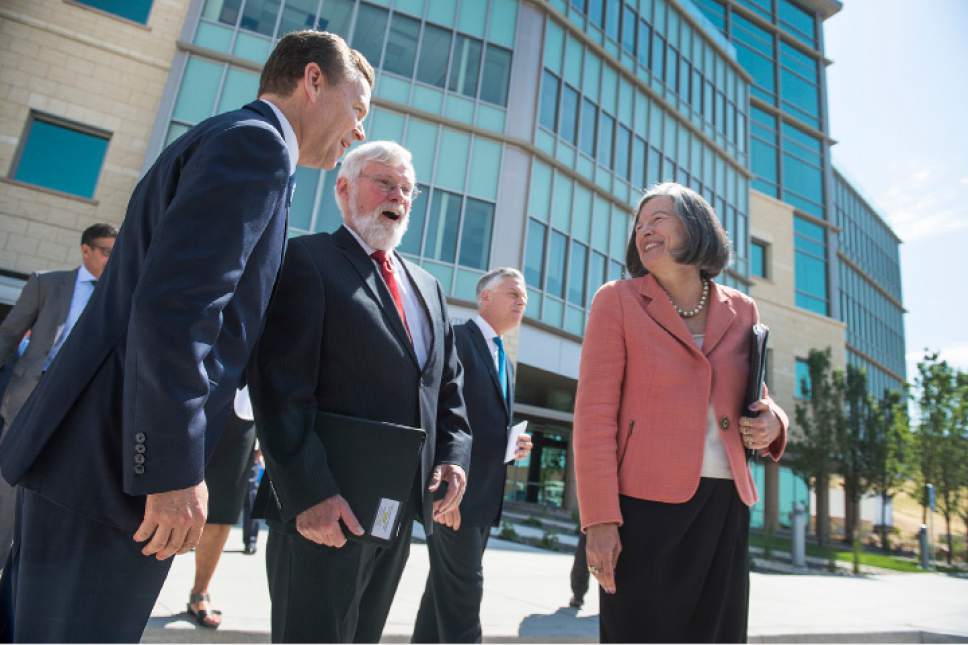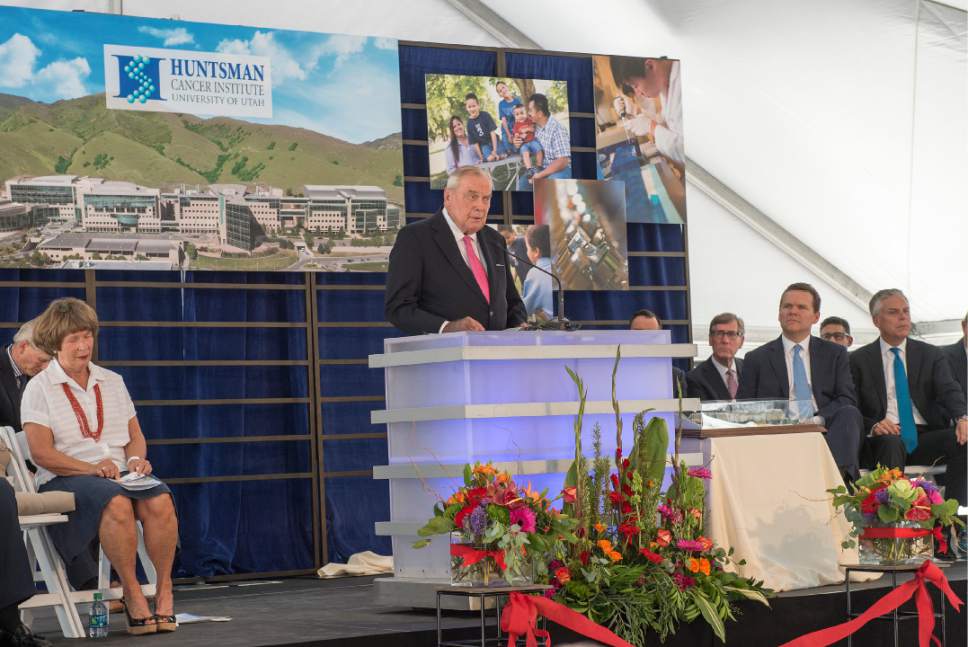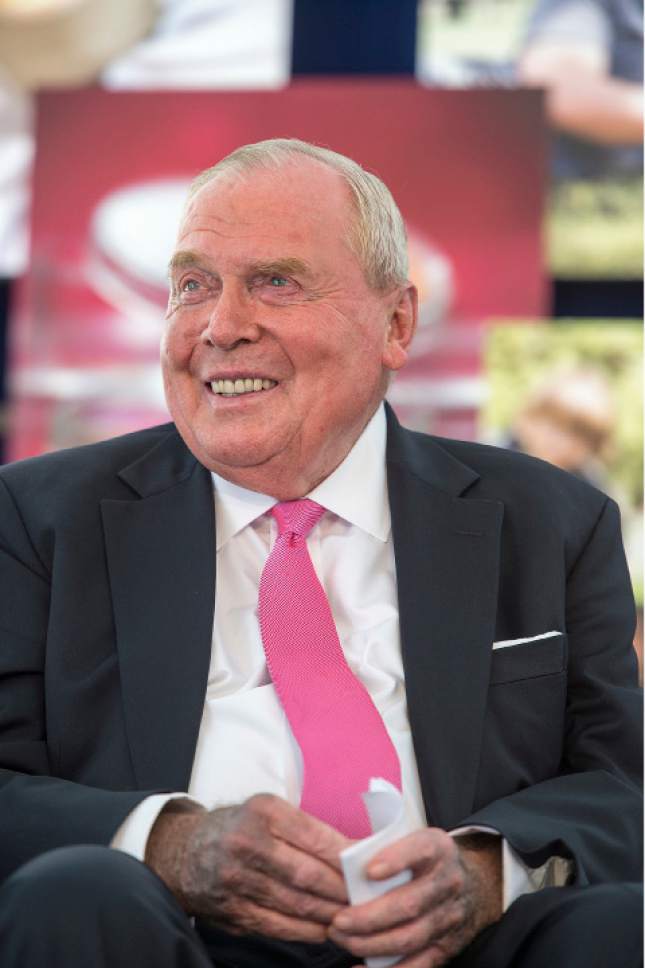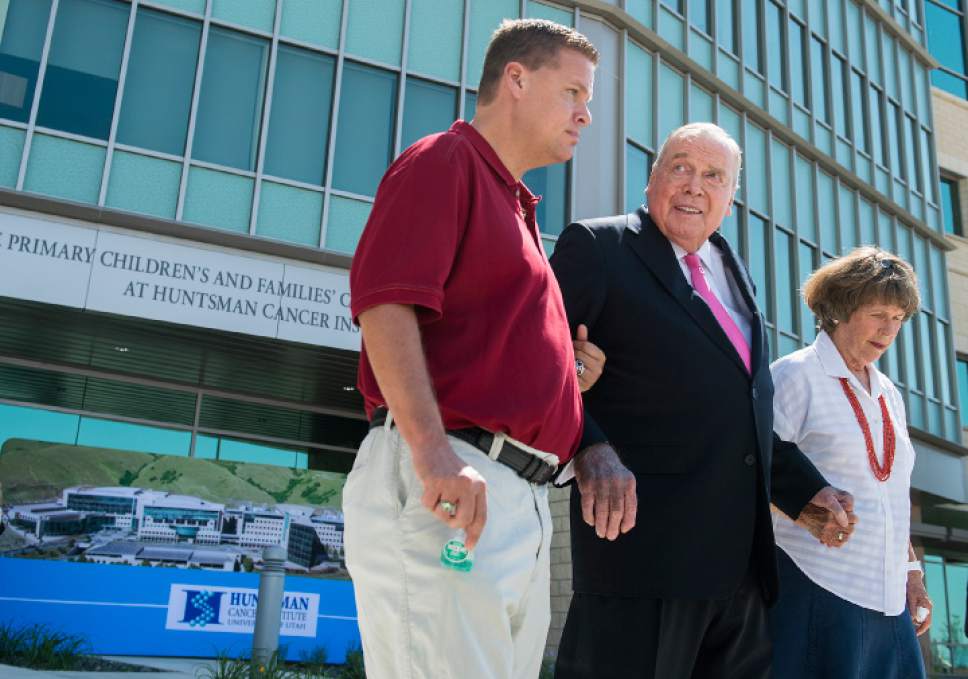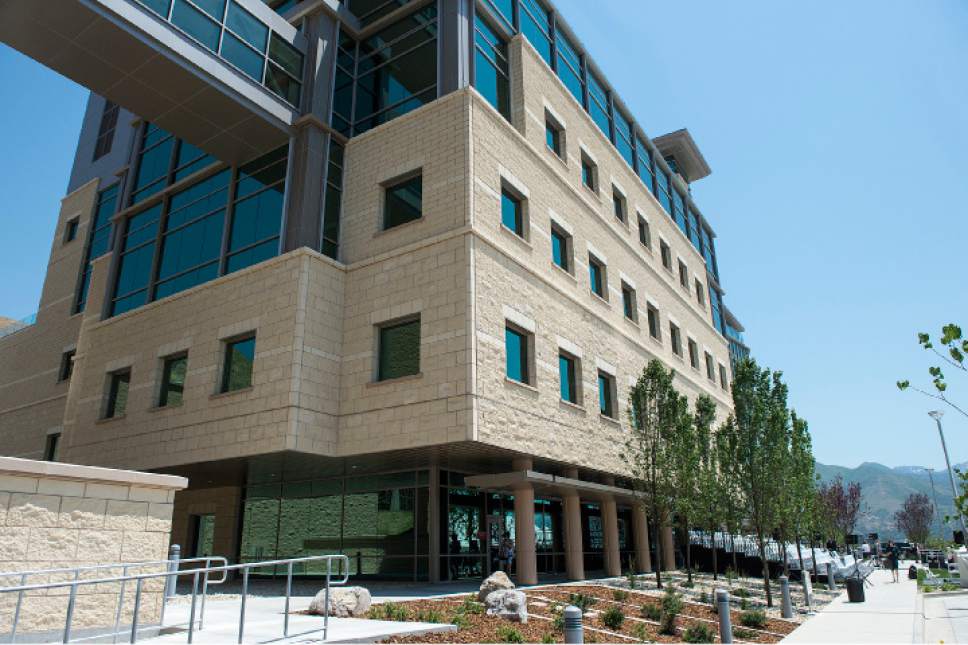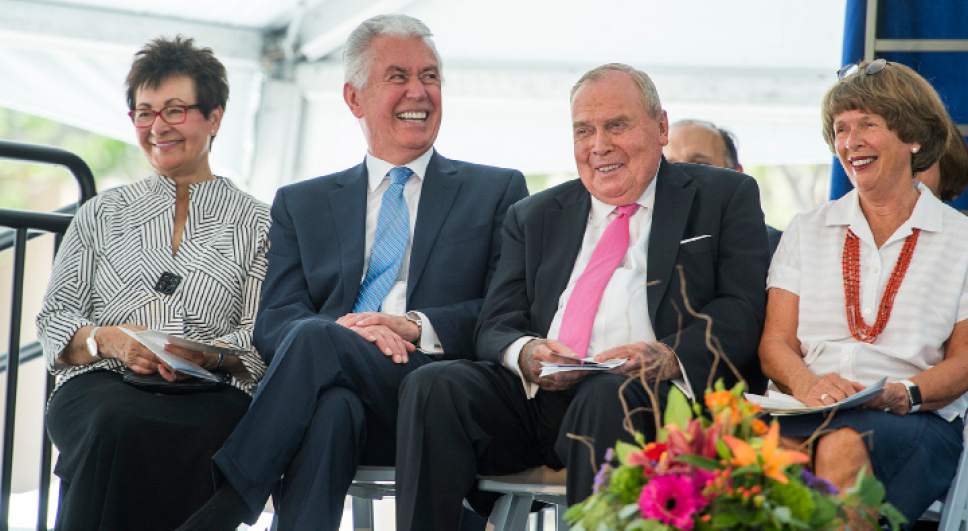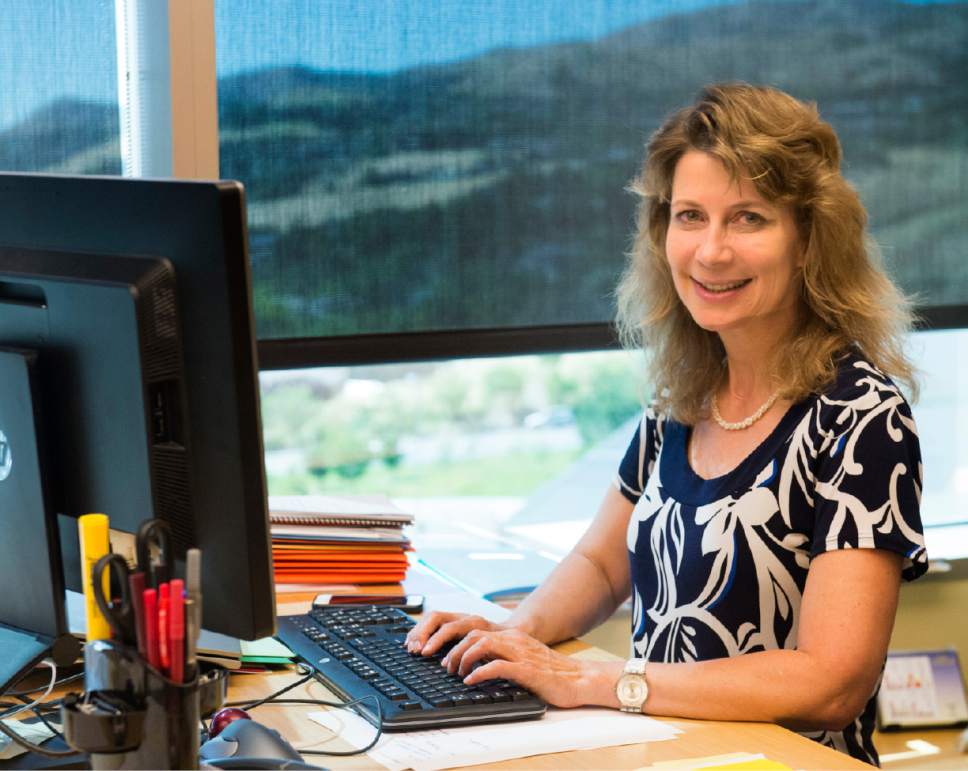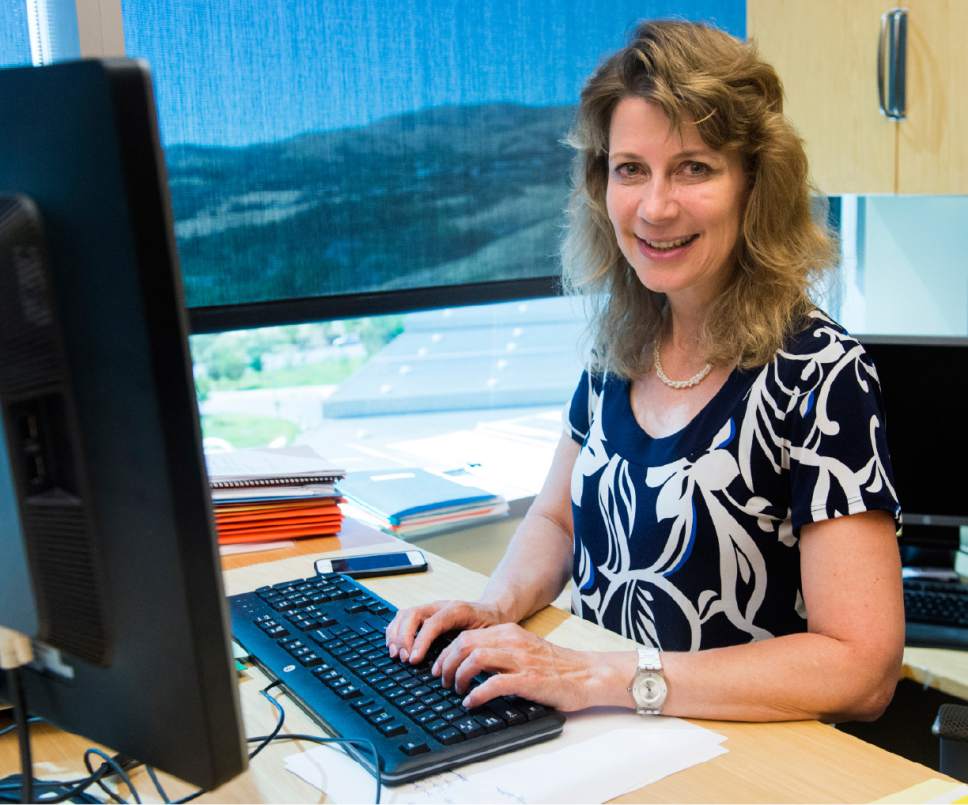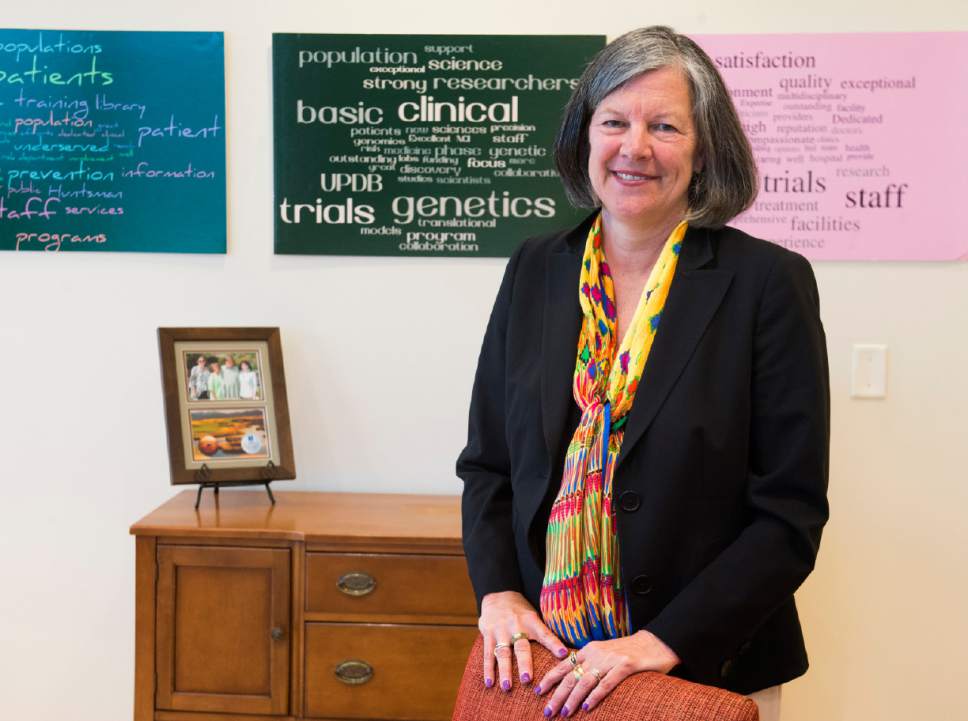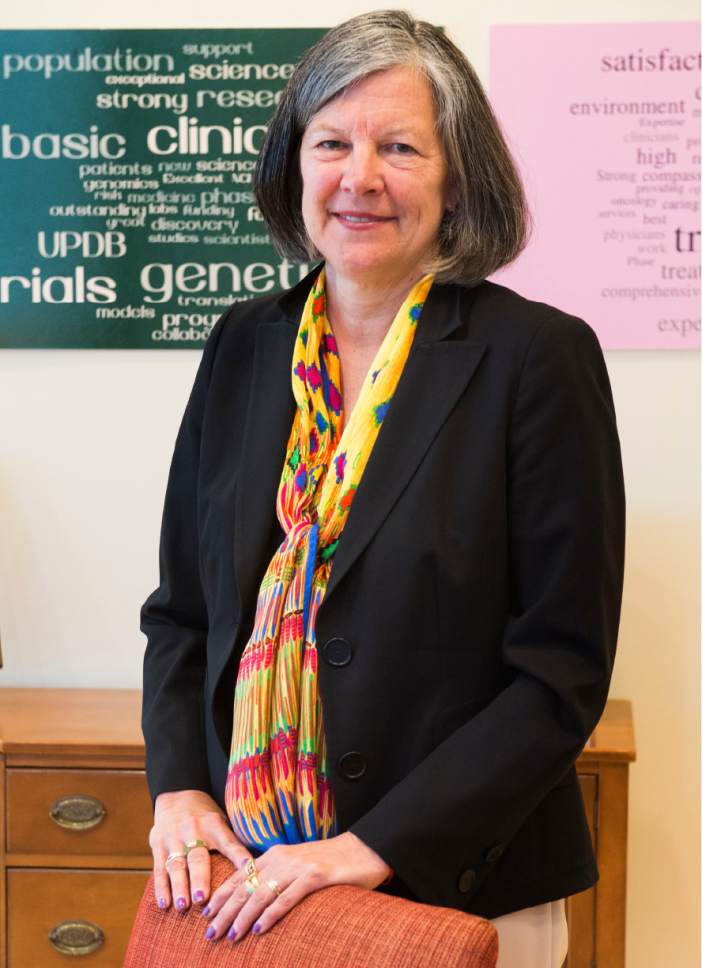This is an archived article that was published on sltrib.com in 2017, and information in the article may be outdated. It is provided only for personal research purposes and may not be reprinted.
Rebecca Ward assumed she had a canker sore when she visited her dentist for a routine checkup in May 2015.
A month later, the Idaho Falls resident was undergoing oral surgery for cancer and having a third of her tongue reconstructed with skin from her left forearm.
"The best is when I suck on Jolly Ranchers," Ward said Wednesday. "My whole tongue goes blue except for the bright white skin part."
Ward is cancer-free and makes quarterly trips to Salt Lake City to visit her doctors at the Huntsman Cancer Institute.
Though she gets anxious about a relapse, she said the cancer center provides a great support system and is well-worth the more-than-three-hour drive.
"They want you to be happy while you're fighting," she said.
On Wednesday, the Huntsman Cancer Institute celebrated the opening of a 225,000-square-foot expansion, doubling the laboratory space at the University of Utah facility and allowing for up to 800 additional faculty and staffers.
The $116 million Primary Children's and Families' Research Center, which broke ground in 2014, is intended to extend the institute's study of cancer treatment and prevention, particularly pediatric cancers of the bone, blood and brain, according to Mary Beckerle, its executive director.
"We have the youngest population in the country here in Utah," Beckerle said, "so we have an excessive burden of childhood cancer here in our state."
Former Utah Gov. and U.S. Ambassador Jon Huntsman Jr. opened Wednesday's dedication ceremony for the expansion, which featured remarks by state and U. leaders and musical numbers by the Mormon Tabernacle Choir.
Jon Huntsman Jr. described the cancer center as "1 million square feet worth of pure hope." He praised his father for founding and guiding expansion of the institute, and taking action to improve and save lives.
"Those who suffer from this dread disease, they know that high-minded words won't cure cancer or relieve the pain and suffering that goes along with it."
Utah Gov. Gary Herbert, who served as lieutenant governor under Jon Huntsman Jr., said that the family's patriarch has "dared to dream" that cancer can be eradicated, and has shown leadership in the face of naysayers who would describe that dream as impossible.
"I don't know of two people who exemplify hope more than Jon and Karen Huntsman," Herbert said. "I think Jon and Karen have had vision where many of the rest of the world wear bifocals."
Jon Huntsman Sr. became emotional as he recommitted to a previously announced donation of $120 million to the Huntsman Cancer Institute. The wealthy philanthropist highlighted the name of the expansion, the Primary Children's and Families' Cancer Research Center, and described its roots in the Church of Jesus Christ of Latter-day Saints-founded Primary Children's Hospital.
"That name will always be sacred, and it will be protected," Huntsman said. "It will never cease to bring good to children and for those who use these facilities."
Beckerle said the Huntsman Cancer Institute is looking to recruit about 40 new faculty group leaders, each who will head six- to eight-person research teams. Over the next three years, the number of faculty and staff members employed by the institute is expected to grow from 1,800 to 2,100, with the new building allowing for a total of 2,600 faculty and staff at capacity.
"The full spectrum of research will be represented in this building," Beckerle said. "We, I think, are destined to become the cancer center of the West, and among the best in the country."
Draper resident John Maack was treated at the institute in 2011 after being diagnosed with non-Hodgkin Mantle-Cell Lymphoma. He was placed on an aggressive treatment schedule, he said, which included six days of inpatient services every two weeks for five months.
"For the first year, I pretty much lived here," he said. "It doesn't feel like a hospital."
Maack is nearing his five-year anniversary of entering remission. He said the Huntsman Cancer Institute feels like a home away from home.
"I'm so grateful that we have Huntsman here in the state," he said. "It's really a gem."
Neli Ulrich, senior director for population sciences at Huntsman Cancer Institute, said the new building will allow for greater interdisciplinary collaboration by bringing together researchers from different fields.
For the past several years, Ulrich has coordinated a study of colorectal cancer, involving seven cancer centers in the U.S. and Germany. The work has identified cancer-causing genes and led to clinical trials of new cancer-fighting drugs.
The next step, Ulrich said, is to refine that treatment to minimize side effects for patients.
"We're trying to lower the dose and adjust this so we can come to a level that's acceptable in the long run and still prevents patients from getting the disease," she said.
Her department will double its space in the new building and add 12 new faculty members. But she noted that the combination of research and health communication is where Huntsman Cancer Institute excels at linking groundbreaking science with community outreach.
"My major vision for population sciences here is to do research that makes a difference," Ulrich said, "either in the clinic or in the population."
The new facility follows a period of upheaval for the institute, which saw the abrupt firing of Beckerle in April by Vivian Lee, former CEO of U. Health Care.
Beckerle's termination was criticized by institute staff and the wealthy Huntsman family, whose charitable largesse helped found and build the Huntsman Cancer Institute. After a week, U. administrators reversed course and reinstated Beckerle. Lee subsequently resigned, and U. President David Pershing moved up the announcement of his retirement.
Asked about the episode, Beckerle said the discussion and debate that followed her removal demonstrated the commitment that the institute, university and broader community all have for the underlying mission of battling cancer.
"The most important thing is that we get back to work and focus on the critical mission that we're here for," Beckerle said. "And that is to eradicate cancer from the face of the earth."
Twitter: @bjaminwood
Editor's note • Paul Huntsman, a son of Jon Huntsman Sr., is the owner and publisher of The Salt Lake Tribune


